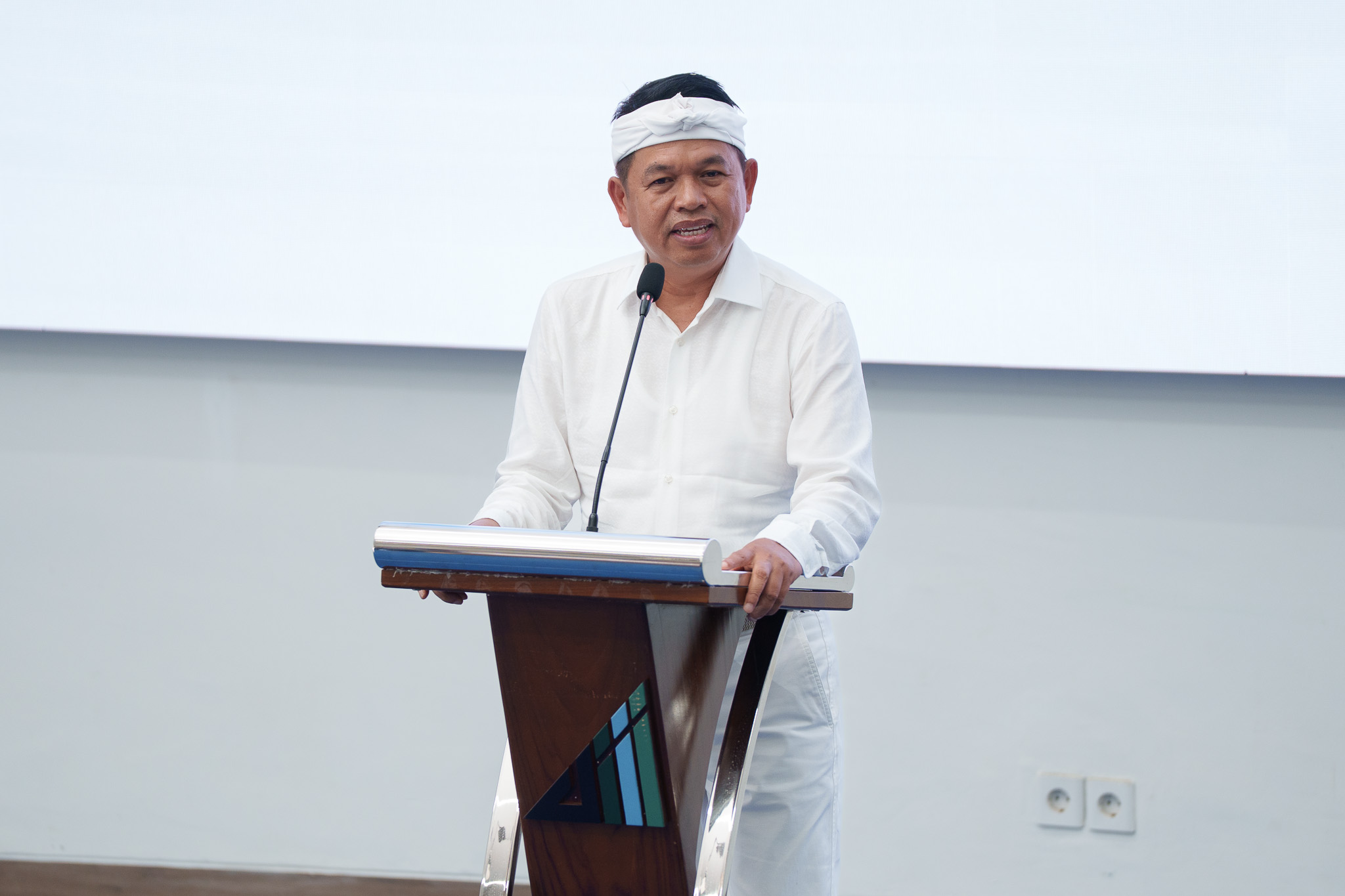More From News
UIII Builds a Bridge to Costa Rica
February 26, 2026
October 8, 2025
Contributor: Supriyono | Photo: Achmad Jatnika

West Java Governor Kang Dedi Mulyadi (KDM) delivered an inspiring lecture at Universitas Islam Internasional Indonesia (UIII) on October 8, 2025, urging students and scholars to see how Islamic values and local wisdom can unite to shape a more just and harmonious world.
The event, themed “Building West Java Together: From Local Wisdom to the Global Stage,” highlighted UIII’s pivotal role as an international university located in Depok, part of the cultural heartland of Sunda Land. According to Kang Dedi, this geographical and cultural setting gives UIII a distinctive mission—to advance the process of bringing Sundanese local spiritual and cultural traditions into meaningful global dialogue, a process widely known as ‘indigenous internationalization’.
“UIII offers me a new perspective,” Kang Dedi said. “As Governor, I see this university as a space where Nusantara culture and Islamic universalism meet—where I can introduce Sundanese civilization through the lens of religious values that are universal and liberating.”
Kang Dedi emphasized that long before the formal arrival of Islam, Sundanese society had already lived by Islamic principles—justice (‘adl), humility (tawadu’), stewardship (amanah), and compassion (rahmah). These values, he explained, were reflected in their harmonious relationship with nature and community.
“In the Sundanese worldview,” he said, “the earth, water, and forests are not possessions but trusts. The gravest sin is not personal wrongdoing, but destroying the environment—cutting trees, draining lakes, or turning green spaces into private property.”
He urged the audience to re-examine how moral teachings in Islam are deeply connected to social justice and environmental ethics, reminding that sins against creation are also sins against the Creator. “Our faith must guide not only our prayers but our protection of life, land, and community,” he noted.
For Kang Dedi, UIII’s presence in West Java symbolizes the meeting point between revelation and culture—a place where faith nurtures wisdom and where local traditions can enrich global Islamic thought. He envisioned the university as a future center of inclusive and liberating Islamic discourse, rooted in Indonesian civilization yet open to the world.
“I believe that one day, the world’s center of Islamic civilization studies will be here—in Indonesia, in West Java, at UIII, teaching Islam that liberates, not dominates; that embraces, not excludes,” he said.
By integrating iman (faith), ‘ilm (knowledge), and ‘amal (action), UIII, he said, could help redefine how Islam is understood globally—not as a monolithic tradition, but as a living, ethical civilization that upholds justice, equality, and peace.
Situated in Depok, UIII stands at the crossroads of spiritual heritage and modern scholarship, making it an ideal space to project Indonesia’s Islamic moderation and cultural richness onto the world stage.
“Through institutions like UIII,” Kang Dedi concluded, “Indonesia can speak to the world not only through its faith, but through its wisdom—showing that true civilization is built upon balance: between humanity and nature, between tradition and progress, and between devotion to God and service to creation.”
Kang Dedi’s message serves as a reminder that the soul of West Java, and indeed of Indonesia, beats in harmony with the essence of Islam itself. It is a call to transform faith into compassion, wisdom into action, and heritage into light. Through UIII, the stories of Sunda, the spirit of Nusantara, and the values of Islam are not merely preserved—they are elevated to the world stage as a shared moral compass for humanity.
Universitas Islam Internasional Indonesia